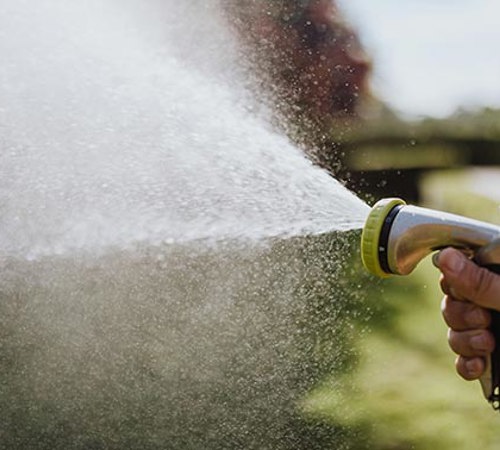
How UK hosepipe bans are affecting the leisure vehicle and holiday park industries in 2025
Following one of the driest springs on record, hosepipe bans – officially known as temporary use bans or TUBs – have been introduced across parts of the UK, including Yorkshire, Kent, Oxfordshire, Sussex and also in Wales. These restrictions have the potential to impact businesses in the leisure vehicle and holiday park sectors, which depend heavily on water for cleaning, maintenance and guest services.
Effects on leisure vehicle businesses
Leisure vehicle dealerships and rental companies typically use hosepipes or jet washes connected to mains water to clean caravans, campervans and motorhomes. Under current regulations, a connection to mains water for vehicle washing is prohibited, with a fine of up to £1,000, but happily for businesses use of a hose or connection to mains water to clean a vehicle that you will be selling or renting is allowed.
However, there's always more that businesses can do to help save water, such as:
Challenges for holiday parks
Holiday parks may face difficulties, especially those with landscaped grounds, swimming pools and communal washing areas. Hosepipe bans usually place restrictions on watering lawns and ornamental gardens, though you'll still be able to water these with a watering can.
If you operate a swimming pool on-site, it's usually permitted to keep this topped up, while cleaning outdoor spaces, as long as the use is required for health and safety purposes, can normally be justified.
If you offer hot-tubs, at short-term rental accommodation for example, you're typically exempt from the ban when keeping them full and in clean condition. However, it's essential you check with your water company as they may place different restrictions on your activity.
To adapt and reduce water use, holiday parks can:
Avoiding fines and promoting awareness
Understanding the exemptions is key to avoiding penalties. Businesses may still use hosepipes for essential operations, such as cleaning for hygiene or safety reasons, but must be prepared to justify this use if questioned.
Encouraging water mindfulness among staff
Employees play a vital role in reducing water consumption. Businesses should:
If you're in any doubt, contact your water company to find out what restrictions you may be under, especially as they can differ slightly between regions.
You can find out here if your local area is subject to a hosepipe ban.